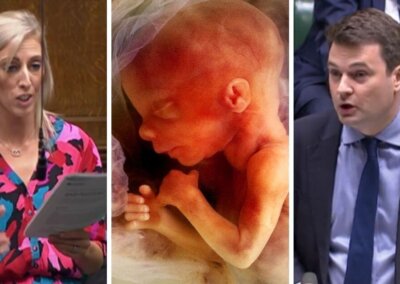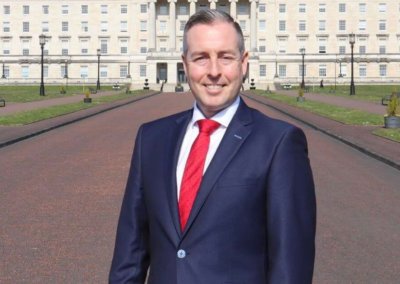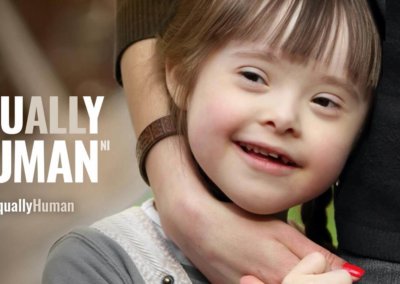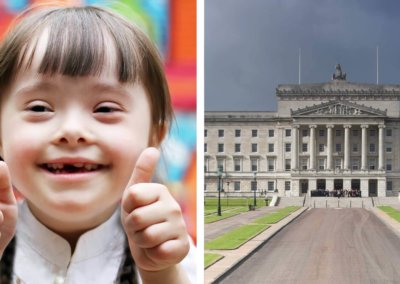Mothers whose children were born with a cleft lip and palate have spoken out in horror that the proposed abortion regime in Northern Ireland will allow babies with the condition to be aborted through to 28-weeks.
Cleft lip and palate is a condition which causes a small or wide gap in the roof of the mouth, upper lip or both. It is usually easily fixed by minor surgery.
Terri Thomas was angry and shocked when she heard that a proposed change in the law in Northern Ireland would mean that abortions for cleft lip and palate would be available up to 28 weeks in Northern Ireland.
She said: “to read that some people [in Northern Ireland] may now consider a termination simply because of a cleft lip or palate is so upsetting”.
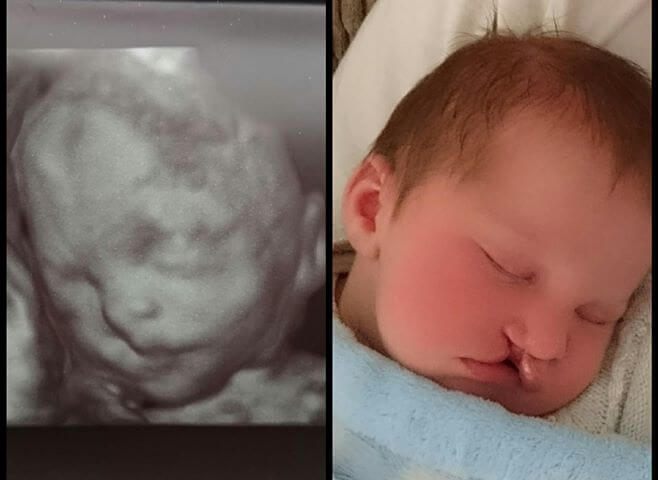
Terri Louise Thomas said when her son, Joseph Daniel, was diagnosed with the condition she had lots of questions but never considered an abortion.
Following the birth of Joseph, the mother of two said: “to me he was perfect, his lip didn’t bother me in the slightest, I just felt pure love.”
Terri shared that Joseph is now almost two-years-old and has since had surgery on his lip, which has healed quickly and his scar is barely noticeable.
She added that “he is such a happy, clever and inquisitive little boy! He makes me smile every day.”
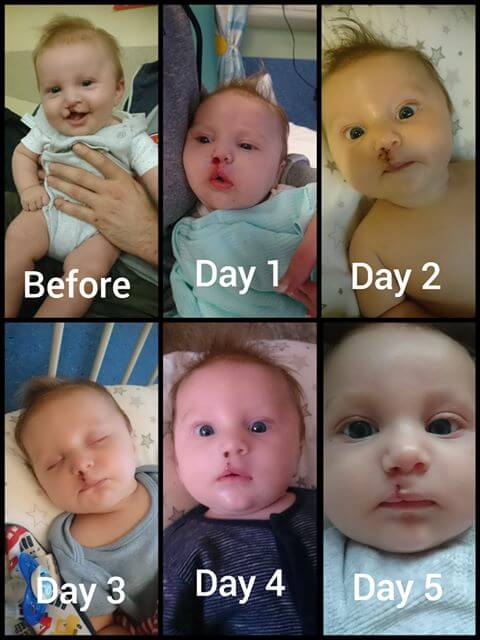
Another mother, with a similar experience to Terri, has said she was left feeling distraught and heart-broken when she heard that the change in the law would mean that unborn babies could be aborted just because they had a cleft lip and palate.
Lauren Bolt said her daughter, Lily Grace, was only diagnosed with the condition three weeks before she gave birth to her.
However, even though Lauren didn’t know what a cleft lip and palate was, she wasn’t upset or worried about the condition.
The day her daughter, Lily-Grace, was born she said: “I set eyes on the most precious little girl with a unique cleft lip that looked like a love heart.”
Lily-Grace, 2, has also had corrective surgery on her lip. Lauren said “Lily Grace is the happiest, most beautiful little girl ever! She has so much character and I completely forget she was ever born with a cleft lip.”
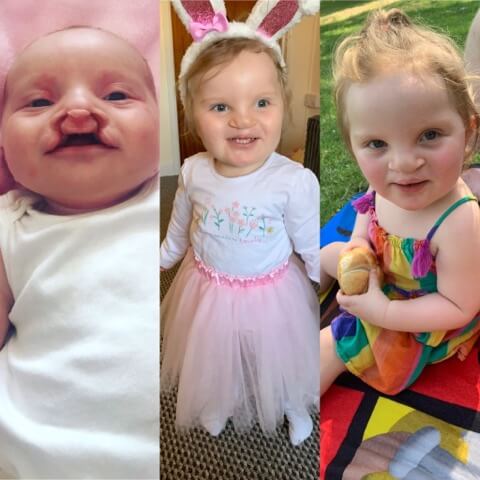
Terri and Lauren both said they received great medical support from medics. The two mothers would encourage pregnant mothers, particularly in Northern Ireland, with children diagnosed with cleft lip and palate to keep their unborn babies and seek that same support.
What will change in Northern Ireland?
In July, in the absence of a functioning Stormont government, Westminster politicians voted to impose abortion on demand, up to 28-weeks, on Northern Ireland if Stormont’s Executive is not restored by 21 October.
If the change in law goes ahead, section 58 and 59 of the Offences Against the Person Act will be repealed in Northern Ireland. Abortion will be available, on-demand, up to 28 weeks legalising sex-selective and disability-selective abortion including abortion for Down’s syndrome, cleft lip and palate and club foot.
The proposals which are due to be imposed on Northern Ireland were passed after just 17 minutes of debate in the House of Commons around the final amendment that forced the change on Northern Ireland.
The original amendments, brought forward by pro-abortion MP Stella Creasy and widely thought to be outside the scope of the Bill, were only introduced and made known less than an hour before they were debated.
332 MPs in Westminister voted to force abortion on the province, despite it remaining a devolved issue in Northern Ireland and the fact that every single MP representing Northern Ireland in Westminster voted against the amendment.
Lord Shinkwin, who himself has a disability, heavily criticised the move citing the impact that it will have on people with disabilities.
Speaking in the House of Lords he said: “I am good enough to sit in your Lordships’ House, but this Bill suggests that someone diagnosed before birth with a disability such as mine in Northern Ireland would only be considered good enough for the incinerator.”
“Because that is the brutal message of this Bill: if you are diagnosed with a disability before birth in Northern Ireland, you will not just be worth less than a non-disabled human being; you will be worthless—you would be better off dead. What a dreadful message for this House to send the people of Northern Ireland, without even having consulted them in advance.”
Cleft lip and palate & Down syndrome abortion under-reported
In England and Wales, the number of abortions performed on unborn babies with cleft lip and palate has accelerated in recent years.
Official figures show that the number of terminations for those with the condition has more than tripled, from 4 in 2012 to an all-time high of 15 in 2018.
Since 2011, 75 unborn babies have been aborted because they had a cleft lip and palate.
However, findings from a European register have revealed that abortions for cleft lip and palate can be over ten times more common than what is being reported.
Eurocat, which was set up to register congenital abnormalities across 23 countries, found that 157 unborn babies, with the condition, were aborted in England and Wales between 2006 and 2010. The Department of Health only recorded 14 such abortions.
Joan Morris, national co-ordinator for Eurocat and professor of medical statistics at Queen Mary, University of London, said the group also found the number of babies aborted in 2010 for Down’s Syndrome was double that recorded officially – 886 compared to 482.
She told The Sunday Times: “Babies are aborted for Down’s and they still don’t put that on the abortion form, so if they can’t do it for Down’s, why would they put cleft lip?”
The discovery suggests that the number of unborn babies being aborted because of a perceived disability is significantly higher than what is being reported.
The Department of Health confirmed in a 2014 report that some disability abortions had been wrongly recorded.



